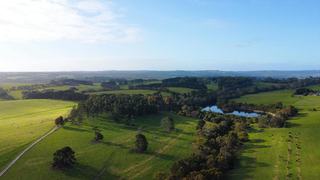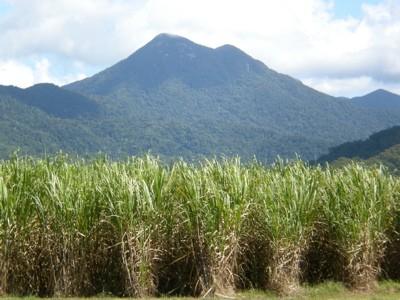Common Hobby Farm Mistakes and How to Avoid Them


Common Hobby Farm Mistakes and How to Avoid Them
Introduction
The bucolic dream of hobby farming, with its promise of fresh produce, content animals, and a deeper connection to the land, often collides with challenging realities that catch newcomers off guard. Many aspiring hobby farmers encounter preventable setbacks that dampen their enthusiasm and strain resources. These errors often stem from common misconceptions about agricultural ventures. The path to creating a thriving hobby farm requires navigating potential pitfalls through careful planning, appropriate research, and realistic expectations about the commitment involved. Identifying these hobby farm mistakes before they materialise allows you to implement strategies that can help you avoid these potential pitfalls. This guide explores the most frequent errors made by hobby farming beginners in Australia and offers practical solutions to help you avoid these costly missteps whilst establishing your rural enterprise.
Planning & Preparation Blunders
Insufficient research represents the foundational mistake from which numerous other errors on hobby farms cascade. Many enthusiasts plunge into agricultural endeavours armed with idealised notions rather than practical knowledge. It is important to invest your time in a thorough investigation of local conditions, appropriate enterprises for your property characteristics, and realistic time requirements. Such an investment often proves infinitely more valuable than learning through expensive trial and error. Underestimating the substantial workload inherent in maintaining even a modest hobby farm constitutes another common pitfall. Seasonal demands fluctuate dramatically with periods requiring intensive daily commitment for activities like kidding season, harvest time, or heatwave management. This necessitates the establishment of realistic scheduling that accommodates these peak labour periods alongside existing work and family obligations. Neglecting proper soil and water assessment before establishing crops or livestock systems frequently leads to disappointing yields, nutritional deficiencies, and potential toxicity issues. Comprehensive soil testing for nutrients, heavy metals, and pH, alongside water quality analysis for livestock suitability, represents a modest initial investment that substantially prevents costlier remediation efforts later. Many beginner hobby farmers encounter significant frustration when discovering their ambitious plans conflict with local council regulations regarding livestock numbers, structure placement, or agricultural activities. Therefore, it is important to make early consultation with planning authorities and conduct a thorough review of zoning restrictions a priority before purchasing property or commencing projects. Perhaps most consequential amongst preparation errors is inadequate infrastructure planning, where hasty implementation of fencing, water systems, or animal housing without proper consideration of workflow efficiency, maintenance requirements, or future expansion needs creates daily inefficiencies and potential welfare concerns. The development of comprehensive property plans with staged implementation prove far more effective than addressing infrastructure piecemeal.
Livestock Management Mishaps
Selecting incorrect livestock for your specific circumstances constitutes a recurring hobby farm mistake, with novices often choosing animals based on romantic notions rather than practical considerations. It is advisable to begin with more forgiving species like chickens before progressing to more complex livestock. This allows your skills to develop organically whilst minimising risk. Overstocking pastures represents a particularly destructive error that degrades land quality whilst compromising animal health. Exceeding carrying capacity leads to overgrazing, soil compaction, increased parasite burdens, and nutritional deficiencies. Ensuring conservative initial stocking rates with gradual increases based on observed pasture recovery provides a more sustainable approach than attempting maximum production immediately. Inadequate attention to animal health protocols and biosecurity measures frequently results in preventable disease outbreaks, with novice farmers often underestimating the importance of quarantine procedures for new animals, regular parasite management, appropriate vaccination schedules, and proper feed storage to prevent contamination. Developing relationships with experienced livestock veterinarians before emergencies arise proves invaluable for implementing proper preventative health strategies. Furthermore, the Australian landscape harbours numerous predatory threats to hobby farm livestock, yet many beginners fail to provide sufficient protection. This can be caused by inadequate fencing, unsecured housing, or failure to implement guardian animals where appropriate. Predator deterrent systems designed for specific species, including electric fencing, secure night housing, motion-activated lighting, or livestock guardian animals, represent essential investments rather than optional extras. Misinterpreting the behaviours and needs of different livestock species frequently leads to welfare concerns and management difficulties, with newbie hobby farmers anthropomorphising animal behaviour or failing to recognise important stress indicators. Therefore, systematic observation and education about species-specific requirements for social grouping, shelter preferences, and natural behaviours significantly improve management outcomes and animal welfare.
Financial Errors
Inadequate financial planning stands as one of the most common hobby farm errors. Enthusiasts are susceptible to underestimating the establishment costs of hobby farms while overspending on frivolous equipment or livestock. This expenditure often occurs before the development of the skills required to handle such advanced livestock or equipment. Activities such as feed requirements during drought, veterinary emergencies, equipment maintenance, and infrastructure repairs create significant unplanned expenditures. Tracking all farm-related expenses meticulously helps establish realistic expectations for genuine operational costs rather than idealised projections.
Inadequate and improper financial record-keeping prevents accurate assessment of enterprise performance and taxation compliance, with many hobby farmers failing to implement basic systems to track essentials such as expenditure, income, and inventory. The implementation of systems like simple spreadsheets or agricultural accounting applications provide sufficient structure for small operations whilst establishing habits that support potential future commercial expansion.
Those seeking income from their hobby farm often make the critical error of insufficient enterprise diversification, with dependence on single products creating vulnerability to market fluctuations, pest outbreaks, or seasonal challenges. Therefore, the integration of complementary enterprises that utilise the same infrastructure while producing income across different seasons can significantly improve your farm’s financial resilience. Equipment selection represents another area where costly mistakes frequently occur, with beginners often purchasing oversized machinery with excessive capabilities rather than appropriately scaled equipment that matches actual requirements. Considering equipment sharing arrangements, contractor services for occasional needs, or quality second-hand purchases can substantially reduce capital expenditure whilst maintaining operational capability.
How you can prevent making these common errors:
Preventative research represents your most powerful tool against hobby farm mistakes. It is important to invest substantial time visiting established properties, attending agricultural workshops, consulting with extension officers, and reading respected resources before committing to significant expenditure or specific farming directions.
The "start small, grow gradually" approach has consistently proven to be the most successful for hobby farm development. It is important to begin with manageable projects that build skills and confidence whilst avoiding overwhelming commitments. Like mastering chicken keeping before attempting cattle, establishing small vegetable plots before commercial production, or renovating existing structures before constructing new ones represents logical progression. Other strategies include creating supportive networks with experienced local farmers that provide invaluable mentorship and help navigate region-specific challenges, with most established producers willingly sharing knowledge when approached respectfully. Agricultural societies, landcare groups, and breed-specific organisations offer excellent connection opportunities beyond immediate neighbours. Prioritising animal welfare above production goals or aesthetic preferences consistently leads to better outcomes. Healthy, properly managed livestock requires less intervention while providing greater satisfaction. Therefore, investing in appropriate housing, nutrition, and preventative health measures ultimately proves more economical than addressing preventable problems reactively.
Conclusion
As the old saying goes, "An ounce of prevention is worth a pound of cure." Similarly, being aware of common hobby farm mistakes helps you start your farming journey with realistic expectations and smart preventative strategies that can make your hobby farm journey enjoyable while avoiding costly setbacks.
By implementing thoughtful planning, appropriate research, and gradual skill development, your hobby farm can evolve into the rewarding rural lifestyle you envision. Farmbuy's comprehensive resources provide valuable guidance for avoiding these pitfalls through connection with experienced advisors and access to quality information tailored to Australian conditions.
Frequently Asked Questions:
What are common mistakes in hobby farming?
The most prevalent hobby farming mistakes include inadequate financial planning with unrealistic budgeting for both initial setup and ongoing operational costs, inappropriate land selection without proper soil testing or water availability assessment, excessive initial livestock numbers that exceed property carrying capacity, insufficient infrastructure planning leading to inefficient workflows and inadequate animal protection, and failure to thoroughly research local regulations regarding permitted agricultural activities. Many beginners also underestimate the substantial time commitment required, particularly during seasonal peaks, whilst simultaneously overestimating potential income from small-scale production without accounting for genuine production costs and market access challenges.
Check out Farmbuy's comprehensive beginner's guide to starting a hobby farm.
What are the challenges of hobby farming?
Hobby farming presents numerous challenges including unpredictable weather extremes requiring adaptive management strategies, time-intensive seasonal workflows that may conflict with existing employment obligations, substantial learning curves for acquiring necessary technical skills across multiple disciplines, financial pressures from unexpected expenses and equipment maintenance, emotional stress when facing livestock health emergencies or predator attacks, and physical demands that can strain those unused to agricultural labour. The Australian context adds specific challenges including prolonged drought management, bushfire preparedness, and navigating complex water rights issues, all whilst maintaining appropriate biosecurity practices that protect both your animals and the broader agricultural community.
How do I avoid hobby farm failure?
Avoiding hobby farm failure begins with thorough preparation—conduct comprehensive property assessment including soil testing, water evaluation, and climate analysis before establishing enterprises, create detailed budget projections with substantial contingency funding, develop phased implementation plans with manageable stages
rather than simultaneous projects, and establish strong connections with experienced mentors who can provide region-specific guidance. Start with modest, achievable goals focusing on skill development rather than production volume, implement appropriate record-keeping systems from the outset, remain flexible in adapting plans to
emerging challenges, and prioritise sustainable land management practices that maintain or improve your property's productive capacity rather than depleting resources for short-term gains.
How to plan a hobby farm?
Effective hobby farm planning begins with establishing clear goals that align with your resources, skills, and values—define whether your focus is self-sufficiency, supplemental income, environmental improvement, or educational opportunities. Conduct thorough property assessment documenting existing infrastructure, soil types, water resources, microclimate variations, and any limiting factors. Create detailed cadastral maps with overlays for future development zones, wildlife corridors, and water management systems whilst researching local regulations that might impact planned activities. Develop enterprise budgets for each potential farming activity, comparing input requirements against available resources and projected outcomes. Establish staged implementation timelines with realistic progression based on skill development, ensuring each phase builds logically toward your long-term vision whilst remaining flexible enough to adapt to emerging opportunities or challenges.







